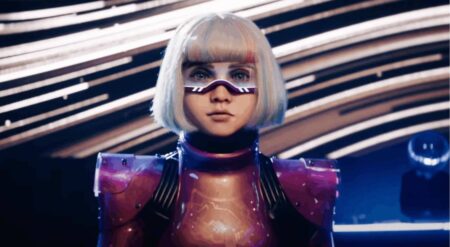
Bob Ross: Happy Accidents, Betrayal & Greed is a Netflix Original documentary film directed by Joshua Rofé, which delves into the personal life of the titular painter. The documentary mainly focuses on Ross’ immediate family, including his son Steve and first wife Vicky, as well as his best friend, Dana Jester. Steve and Jester discuss Ross’ personal life, his dealings with Walt and Annette Kowalski, who ended up founding Bob Ross Inc., and how the formation of that business empire involved less than ethical practices.
Documentaries will often take one of two approaches; either they paint their subject in a mostly positive light, such as Clerk, or they delve into both the flaws and virtues like the Anthony Bourdain focused Roadrunner. But Happy Accidents falls somewhere in between. Steve is willing to discuss lesser-known facts about his father, like how his performance on The Joy of Painting appealed to female viewers. According to Steve, it even led to a group of female fans mobbing Ross at one of his art classes. In addition, the audience learns that his signature afro was a perm; he’d often get it touched up to “tighten his springs.” But his friends and family insist that his love for painting was real, as well as his desire to share that love with others. Rofe splices scenes from The Joy of Painting in-between the interviews, and a montage at the end even shows how Ross has inspired pop culture, including clips from Family Guy and Deadpool.
Most of the interviews are conducted with Steve Ross, who is a far cry from his father. Steve’s hair is graying and slicked back, and he’s almost always shown with a pipe or cigarette in his mouth. His voice is gravelly and carries a pain within it as he talks about his father’s life; he is aching to get all of this off his chest. Yet the one thing the Ross men share is their joy of painting, and a sequence toward the end shows Steve with an easel in hand as he applies brush to canvas. A creative light sparkles in his eyes as he works, and he’s even shown teaching a class how to paint.
If there is a villain in the documentary, it is the Kowalskis. Steve, Jester, and others interviewed for Happy Endings do not mince words for the couple. They are accused of pressuring Ross to sign paperwork that would allow them to use his “name and likeness” for products while he was struggling with non-Hodgkins Lymphoma. Steve even recalls his father shouting over the phone at the Kowalskis, “I’m not giving you my name; you’re not getting my name!” Considering how Ross was known for his sanguine temperament, it’s hard to imagine him ever getting furious with anyone, and it takes on even more of an edge when Steve reveals his father and Annette Kowalski had an affair. It’s also revealed that Steve lost a lawsuit in 2019, which would have given him control over his father’s likeness, which rakes in millions of dollars in revenue each year.
The Kowalskis declined to be interviewed for Happy Accidents and even issued a statement following the film’s release that denied most of the accusations, calling the film “inaccurate and heavily slanted.” While executive producers Melissa McCarthy and Ben Falcone insist they weren’t out to craft a hit piece on the Kowalskis, I feel the film could have benefitted from an interview with them. It would have made the film more well-rounded, in my opinion.
Bob Ross: Happy Accidents, Betrayal & Greed is a rather sobering look at the life of Bob Ross through the people who knew him best. While it might not be everyone’s cup of tea, it is definitely worth a watch if you want to know the man behind the brushes and the memes.
Bob Ross: Happy Accidents, Betrayal & Greed is currently available to stream on Netflix.
Bob Ross: Happy Accidents, Betrayal & Greed
-
Rating - 8/108/10
TL;DR
Bob Ross: Happy Accidents, Betrayal & Greed is a rather sobering look at the life of Bob Ross through the people who knew him best. While it might not be everyone’s cup of tea, it is definitely worth a watch if you want to know the man behind the brushes and the memes.






